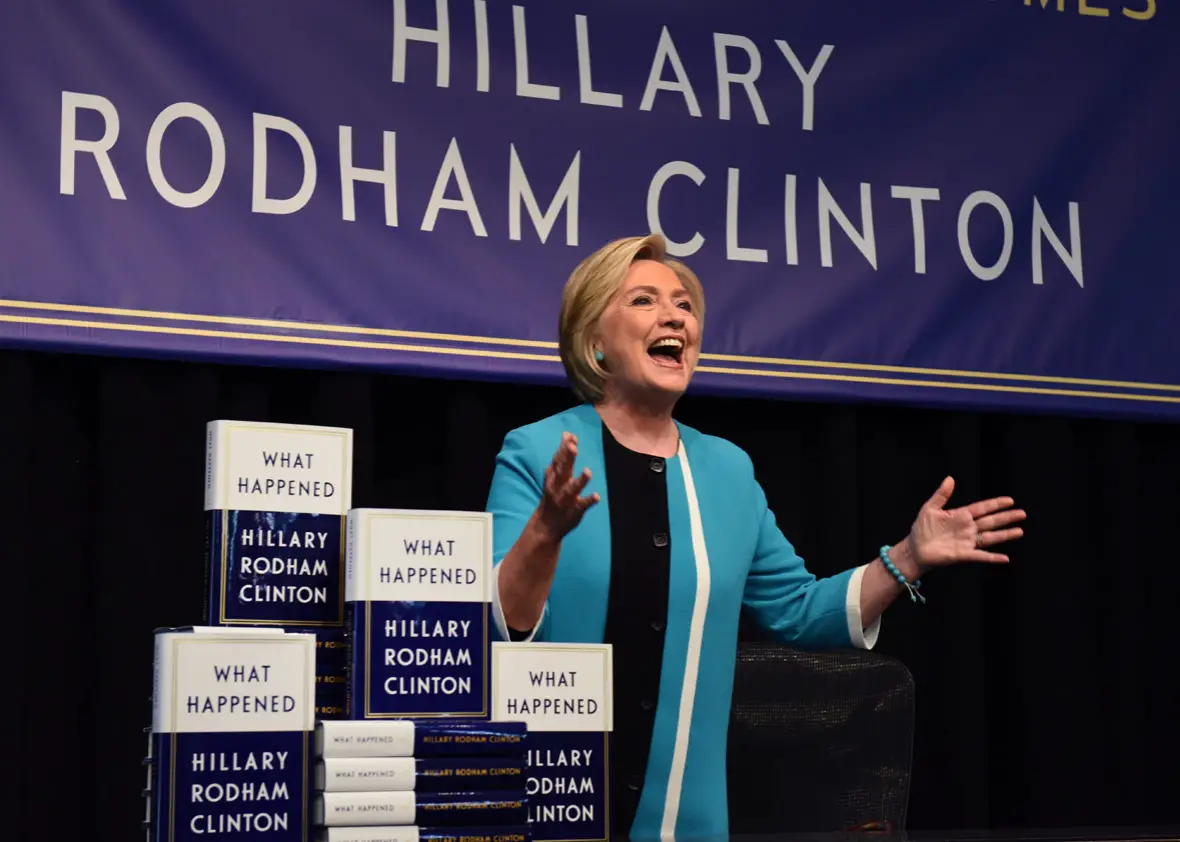As one of the most anticipated books of the year by a politician or otherwise, “What Happened” by Hillary Rodham Clinton promised to be a personal and revealing account of the inner workings of the 2016 election as experienced by Clinton herself. Last year’s election was historical not only for its first female presidential candidate ever for a major political party, but also for the scandal, unprecedented politicking, mudslinging and vulgarity of her opponent, Donald Trump. Clinton’s challenges were unlike any that her male counterparts had to face, which she does well to point out, but the analysis of the campaign and mistakes made—which is the crux of the book—in her retrospective vision still fell short in many ways.
Lest readers forget just how momentous the presidential campaign of Hillary Clinton was to American politics, Clinton immediately goes into the immense pressure that she felt as the first female candidate with so many women’s hopes and dreams projecting outwardly and riding on her shoulders. In the early stages of the book, Clinton talks about the many women, and men, that she spoke with during her campaigning that gave her the hope and courage to face the vitriolic, sexist language by the media and her opponents alike. And when she lost, these same women were the source of strength she needed to pick herself up from one of the most disappointing—and downright strange—election outcomes in modern American history. She is poignant in her language when addressing the double standards faced on issues such as how she dressed, talked, carried herself, etc. when none of the male candidates faced the same attention.
Clinton also has no qualms with directly addressing those that might find themselves uncaring or unsympathetic toward the importance of a female candidate: “If you can’t imagine why it would matter for many of us to see a woman elected President… I’d simply urge you to accept that it matters to many of your fellow Americans, even if it doesn’t to you.” It’s an extremely emotional beginning to a book that is already depressing subject matter. As someone that has many differences in political views, I still found myself unashamedly tearing up at the glimpse into the weight that Hillary Clinton carried for all American women as a trailblazer in the election and the despair that both she, and much of the nation felt, when dreams of what could have been became those of what should have been.
The feminist critiquing of the sexism that she faced from many different sides was a running theme throughout the book. But Clinton also chose to weave in political jabs to (mainly) Donald Trump, but also to her primary opponent Bernie Sanders as a common thread running through her narrative. Admittedly, the Trump burns were some of the most entertaining bits of the book, as Clinton was markedly poised and stoic during the campaign when interacting with the ludicrous nature of Trump to maintain her image as a levelheaded candidate. She lets us catch glimpses into what she really thought during those infamous moments onstage at political debates, her reactions to the many scandals such as the open bragging of Trump sexually assaulting women in the infamous “Access Hollywood” tapes as well as the aggressive populist nature of the Republican candidate.
Recalling one of the strangest presidential debates of the campaign, in which Trump famously used his enormous frame to prowl behind Clinton like a hungry shark—even peeking over her shoulder at some points—as she took to the microphone to answer questions, Clinton remembers thinking to herself, “Back off, creep.” Of course, she kept her cool, though if she had said that during the moment I would have cheered her on. But the glimpse into what she was thinking humanized her in a way that would have been beneficial during the campaign, not after it. This is one of the many regrets that Clinton had. While she has spent a life in politics carefully crafting her words and remaining silent when necessary, she realized too late that this was not the most effective strategy against a man that has absolutely no filter in anything he says or does. Had Clinton chosen to open up to the American people, though making her more vulnerable in the moment, one can only guess that the outcome may have been different.
As a pragmatic and careful person, Clinton chose to see the revolutionary nature of Sanders’ primary campaigning as a fault. More moderate in policy and language than her primary opponent, instead of looking introspectively to make some changes within the liberal—this word is used here pertaining to her view of change happening within the pre-established order of things, as opposed to radical—nature of her arguments, she instead painted Sanders as a politician with his head-in-the-clouds that would not gain real change, thus also alienating the voters that aligned themselves with his thinking.
This is the exact mistake that she made during the election, and arguably is what contributed to many Bernie supporters going rogue and voting for Trump instead of Hillary, and yet she continues to stick to this argument after months of reflection in her book. Though maybe I should confront some bias here as a former Bernie supporter, I still find it alarming that Clinton would vilify a group of people wanting radical change to improve the lives of everyone just because she doesn’t agree with the nature of the politics. In some instances, big ideas should come first, and politics will follow; something I wish Clinton had confronted herself more on throughout the book.
Filled with personality, moments of daily life of a world-famous politician, intelligent thoughts and feelings, matters of importance and the ability to (most of the time) take the blame for “what happened,” Clinton offered readers a much-needed narrative to help make sense of the election. While reading this book as a guarded or defensive person that is still salty about the election—I mean, it’s hard not to be sometimes, I get it—will have no positive effect on the outcomes or changes that need to be made in future elections, it will give you much to consider if you come at it open-minded and ready to critique where it’s needed. Clinton may not have given all the answers, but she gave an account more personal and emotional than anything she has before.

















